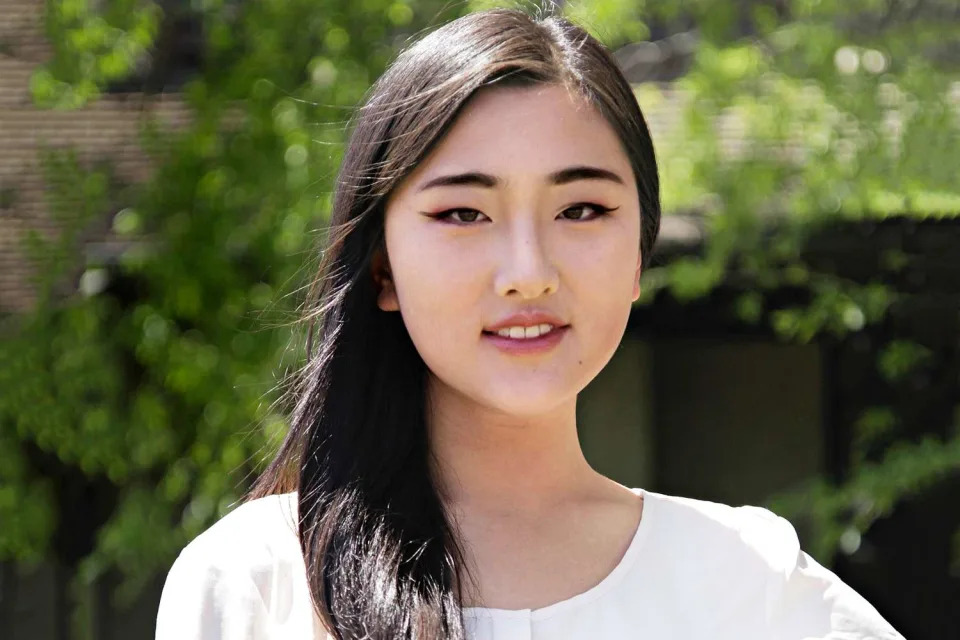- Joined
- Apr 14, 2011
- Messages
- 17,871
- Points
- 113
The Moment I Learned Someone Made Deepfake Porn of Me — and How I’m Fighting Back
Johnny DoddSat, 18 May 2024 at 5:45 am GMT-7·4-min read
"Justice wouldn’t be possible for me unless I changed the entire system," Breeze Liu says

Courtesy Breeze Liu
Breeze Liu
- Breeze Liu was 24 when she discovered there was fake pornography of her online
- After running into obstacles getting the police involved and in trying to remove the content, she decided to make her own solution
- Her company, Alecto AI, is developing free-to-use facial recognition software to allow victims to identify faked and abusive content and then remove it
But she soon saw the doctored clip, featuring her face, on a widely used adult website, and she fought the urge to vomit.
“I was devastated,” she says. “I was so humiliated and felt so alone.”
Shaken by what she saw, Liu, then 24, walked up to the roof of her parents’ apartment building and told herself she no longer had any reason to live. “All I could think about,” she recalls, “was that I’d be better off dead.”
Liu didn’t jump that day. Instead she called the police in Berkeley, Calif., with the name of the person who she suspected had created the video — a student she knew before her graduation from the University of California at Berkeley two years earlier. But she quickly learned authorities had few tools at their disposal.
“Instead of justice,” Liu says, “they told me there was nothing they could do.”
Not Liu. Her alarm spurred her to tackle the technological nightmare of so-called deepfake porn, which employs artificial intelligence (AI) technology to place another person’s face into sexual material to imitate real videos.
Liu, who spent years in the cryptocurrency sector, is now developing free-to-use facial recognition software that will allow victims to identify faked and abusive content and then remove it.
“Justice wouldn’t be possible for me unless I changed the entire system,” she says.
For more on Breeze Liu's mission to stop deepfake porn, pick up this week's issue of PEOPLE, on newsstands now.
Like many deepfake victims, Liu — who emigrated from China in 2013 at age 17 — watched as her life was turned upside down by the spread of the manipulated content.
She lost 12 lbs. in 10 days after learning what was happening. “I was trying to live a normal life, but deep inside, every second I was screaming,” she says. “Every person who passed by me on the streets, I would wonder, have they seen the video?”
Liu says she confronted the suspected perpetrator, who initially removed the clip from that first adult website, only to later share similar posts on hundreds of other sites.
She’d rebuffed his advances, she says, and he wanted “to humiliate me.”
She was also floored by what happened when she reached out to police. “They asked me if I’d ever engaged in prostitution or had exchanged nude videos for money,” she says, noting that their investigation was closed after three months. (Law enforcement didn't respond to a request for comment for this story.)
Liu eventually discovered more than 800 links containing deepfake material of her, but efforts to get them all removed proved futile because of bureaucratic obstacles, an outcome she says she learned was all too common.

Nina Palazzolo
Breeze Liu and Sen. Amy Klobuchar in 2023 at a Reclaim Coalition x Panorama x Bumble event in Washington, D.C, to end online image-based sexual violence.
That wasn’t acceptable to Liu. By 2022 she’d used her savings to launch her San Francisco-based company Alecto AI, which employs facial recognition technology to help users locate deepfaked videos and other content using their likenesses and then, in partnership with major platforms, have it removed.
Liu’s venture — which awaits another round of funding before being fully rolled out — could be a much-needed tool to combat a problem that is feared to affect thousands if not many more.
“The psychological and emotional trauma from this [for victims] is tremendous,” says University at Buffalo computer scientist Siwei Lyu.
Never miss a story — sign up for PEOPLE's free daily newsletter to stay up-to-date on the best of what PEOPLE has to offer, from celebrity news to compelling human interest stories.
Currently there are no laws targeting the production and dissemination of deepfake porn, which can be created in minutes with the aid of increasingly advanced — and accessible — AI tools.
“I can’t control what Congress or law enforcement does,” says Liu. “But the one thing we should all be able to control is the sovereignty of our own images online. What I’m building is a first line of defense that gives victims their power back.”
“I spent so much time wanting to curl up and hide," she says before adding, "Not anymore."
